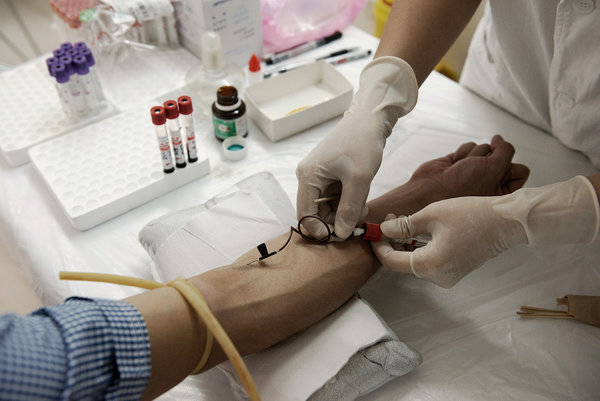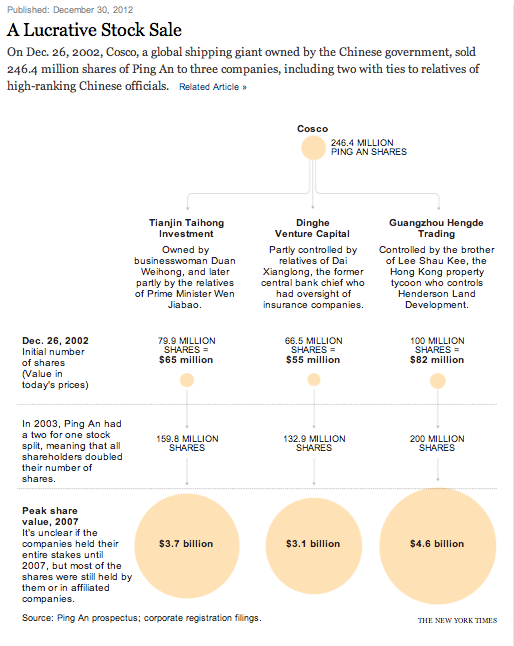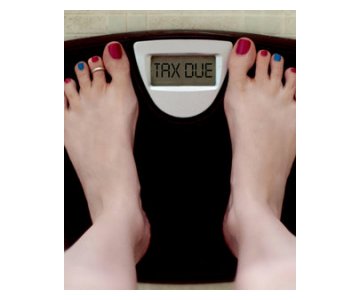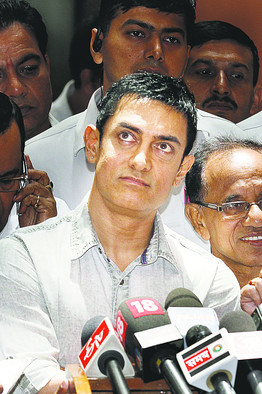 Economist story: "for the first time since 1998 more money leaves China than enters it."
Economist story: "for the first time since 1998 more money leaves China than enters it."
On the surface, you say, "balanced trade!" when what you should really say is "balanced investment!" But even there you'd be missing the subtext, so sayeth The Economist:
MAINLAND China can now boast over 1m wealthy citizens (qianwan fuweng) each with over 10m yuan ($1.6m), says the latest edition of the “Hurun Report”, which keeps track of China’s capitalist high-roaders. But the mainland seems to be having trouble keeping them. According to the report, published on July 31st, more than 16% of China’s rich have already emigrated, or handed in immigration papers for another country, while 44% intend to do so soon. Over 85% are planning to send their children abroad for their education, and one-third own assets overseas.
The affluent 1m have profited handsomely from China’s economic boom. But only 28% of those asked expressed great confidence in the prospects over the next two years, down from 54% in last year’s report.
Them's some stunning numbers: 60% of the rich plan to emmigrate and 85% are sending their kids abroad - thus perpetuating the attraction of leaving the Mainland.
Frankly, those are numbers and dynamics one associates with post-Cold War Russia or Africa of the past several decades. There is a looting quality to this circumstance, driven primarily by the sense that China is becoming a dangerous place to have wealth.
Now, we can all get jacked with the dominant populist vibe (check out the "Dark Knight Rises"), but it's a very negative sign when your rising economy's rich people don't want to stick around. For China it says, we don't trust the - now longstanding - reforms will stay in place. It also says, we want to go where our wealth translates into genuine political power (rich people are like that).
True political pluralism usually arises when the rich realize that the only way they can keep their wealth is to open up the system for a stabilizing middle class to take the reins of political power. No, they don't enjoy the process, but it beats the alternative - revolution typically from the lower classes.
This dynamic is presenting itself across much of the developing world right now: we see the rise of a truly global middle class and - big surprise - amidst all that wealth creation a super-rich emerges (happens every time), thus the richest-to-poorest delta is fantastically large. That's when you get nasty populism that, by and large, can either be deflated nicely by a long progressive period of cleaning up the system, environment, politics, etc., or can explode into something far more destructive.
Europe got that initial middle class about the same time America did, and Europe came up with two scary alternatives: Bolshevism to prevent that dastardly bourgeoisie from emerging, and fascism, which pretended to protect those "shopkeepers" from radicalized workers but really was about keeping the rich safe and everybody else wound up by freakish nationalism and militarism.
America split the difference brilliantly, plowed through a lengthy progressive era, and centered its political system - along with its economy - on a stable middle class.
We are rerunning that Western experiment now on a global scale, with the biggest democratization process to come being - obviously - China, which faces the daunting task of democratizing amidst a progressivist dynamic (like virtually everything China does, it's a combination that's unusual in its "cramming it in" ambition, but there you have it). Meanwhile, the West is coming to grips with two stunning problems: it no longer can manage a blue-collar middle class status and hasn't adjusted its educational system from its industrial era origins, and it's facing a demographic aging wave (less so the US) that forces it to revamp its industrial age pension and healthcare systems rather drastically.
The progressive age that must inevitably unfold globally so as to tame globalization's natural excesses (in this period of rapid expansion) is the most important challenge humanity faces in the next several decades. Truth be told, global warming will by and large have to await that process before being truly addressed on a systematic level (even as much progress should occur thanks to the fracking revolution and its triggering of widescale movement "down" the hydrocarbon chain).
But back to the point of the piece: China's movement toward accepting a progressive era is crucial to initiating this process on a global scale, because a China that moves down this path will be less frightening to an America that is currently using the excuse of "scary" China to delay its own internal reforms (the AirSea Battle Concept being just one telling symptom of a general political escapism).
And this is where I go back and forth in my fears and hopes for China. Whenever I'm there I meet so many in the elite who are acutely aware of all this and realize the global responsibility China's internal development represents. But then I also meet plenty who can't rise above their own fears for their own status. So no, this battle is not decisively waged in either direction, even as I take great solace in the whole Bo Xilai Affair and its diminishment of the brain-dead Red revivalism in the interior.
Interesting times ...
 Tuesday, March 5, 2013 at 8:17AM
Tuesday, March 5, 2013 at 8:17AM 

















